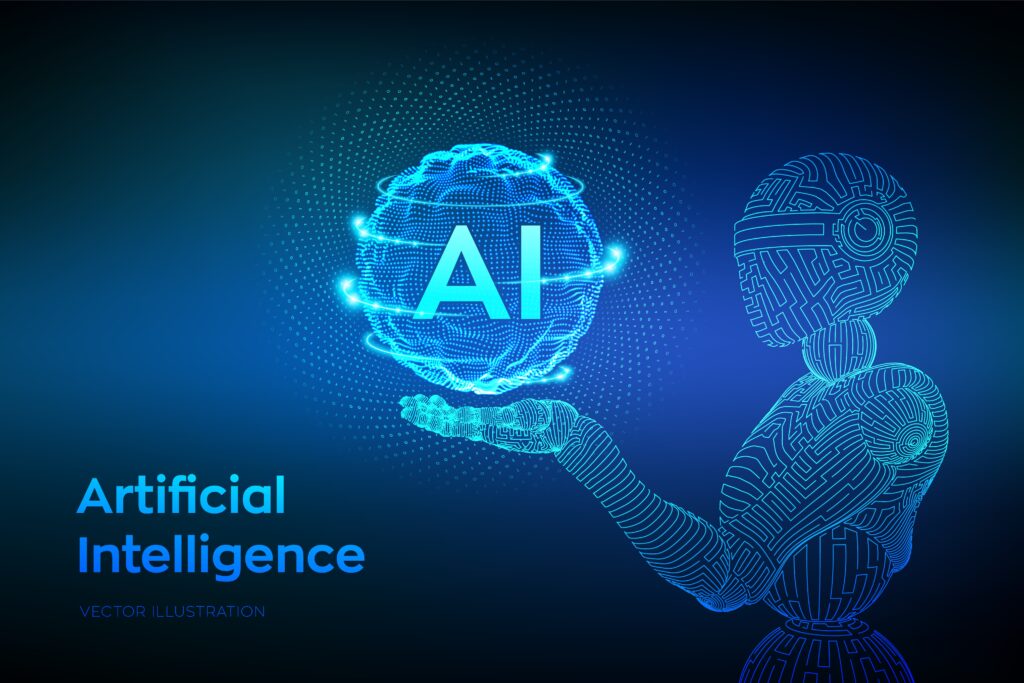Artificial intelligence (AI) is no longer something we only see in futuristic movies or hear about in tech conferences. It is here, all around us, subtly and profoundly transforming the way we live, work, and interact with the world. But how exactly is AI changing our lives? Let’s explore this topic in simple terms to understand the role of AI in our everyday routines.
What Is AI?
Before diving into the details, let’s first define AI. Artificial intelligence refers to the ability of machines or software to perform tasks that usually require human intelligence. This includes things like learning, reasoning, problem-solving, and even understanding language. AI is designed to mimic human thinking and decision-making to make our lives easier and more efficient.
How AI Is Shaping Our Daily Lives
AI is involved in more parts of our lives than we may realize. From the moment we wake up to when we go to bed, AI is quietly working in the background, enhancing our experiences.
1. Personalized Recommendations
Have you ever noticed how Netflix suggests shows you might like or how Spotify curates a playlist just for you? That’s AI at work! AI algorithms analyze your past behavior to predict what you’ll enjoy next, making entertainment more personalized than ever.
2. Virtual Assistants
Devices like Amazon Alexa, Google Assistant, and Apple’s Siri have become part of our daily routines. These virtual assistants use AI to understand our commands and perform tasks like setting reminders, playing music, or even controlling smart home devices.
3. Online Shopping
AI has revolutionized the shopping experience. E-commerce platforms like Amazon and eBay use AI to recommend products, predict trends, and even offer chat support. This helps us find what we need faster and makes shopping more convenient.
4. Navigation and Travel
AI-powered navigation apps like Google Maps or Waze help us find the best routes, avoid traffic, and estimate arrival times. AI is also used in ride-hailing services like Uber and Lyft to match drivers with riders efficiently.
5. Smart Home Devices
Smart thermostats, lights, and security systems learn your habits to make your home more comfortable and secure. For instance, a smart thermostat might adjust the temperature based on your preferences and daily schedule.
How AI Is Transforming Workplaces
AI isn’t just affecting our personal lives; it’s also reshaping how businesses operate and how people work.
6. Automation of Repetitive Tasks
AI is excellent at handling repetitive and mundane tasks. For instance, in offices, AI tools can automate data entry, schedule meetings, and manage emails. This frees up time for employees to focus on more creative and strategic work.
7. Customer Service
Have you chatted with a bot while asking for help on a website? Many companies use AI-powered chatbots to provide instant support to customers. These bots can answer common questions, resolve issues, and even make product recommendations.
8. Recruitment
AI tools are now being used in hiring processes. They can scan resumes, match candidates to job requirements, and even conduct initial interviews. This helps businesses find the right talent faster and more efficiently.
9. Marketing and Advertising
AI has transformed how businesses market their products. AI tools analyze consumer behavior to create targeted ads, ensuring that the right message reaches the right audience. Ever wondered why you see ads for something you just searched for? That’s AI doing its job.
AI in Healthcare
The healthcare sector is one of the biggest beneficiaries of AI technology. It is making medical services faster, more accurate, and more accessible.
10. Diagnosing Diseases
AI algorithms can analyze medical data to diagnose diseases faster and more accurately than human doctors in some cases. For example, AI can detect cancer in its early stages through advanced imaging techniques.
11. Personalized Medicine
AI helps doctors create personalized treatment plans by analyzing a patient’s medical history and genetic data. This ensures that patients receive treatments tailored to their specific needs.
12. Virtual Health Assistants
Apps and devices powered by AI can monitor your health, remind you to take medication, and even suggest lifestyle changes. These tools are like having a personal health coach available 24/7.
AI in Education
AI is also playing a significant role in transforming education by making learning more engaging and accessible.
13. Personalized Learning
AI platforms like Duolingo or Khan Academy adapt lessons based on a student’s pace and understanding. This ensures that learners get a personalized experience suited to their needs.
14. Administrative Tasks
In schools and colleges, AI automates tasks like grading and attendance tracking, giving teachers more time to focus on teaching.
15. Accessibility
AI-powered tools like speech-to-text converters and language translation apps help students with disabilities or language barriers, making education more inclusive.
AI in Entertainment
AI is not only making our lives easier but also more fun.
16. Gaming
AI is a game-changer in the gaming industry. It powers intelligent opponents in video games, making them more challenging and realistic.
17. Movie and Music Creation
Did you know that AI can create music or even write scripts? AI tools are now being used by artists and filmmakers to produce creative content.
AI and Social Media
AI plays a massive role in how we interact on social platforms.
18. Content Moderation
AI helps platforms like Facebook and Instagram detect inappropriate content and remove it quickly, ensuring a safer environment for users.
19. Personalized Feeds
Social media apps use AI to curate your feed, showing you posts and ads based on your preferences and interactions.
The Future of AI in Our Lives
As AI continues to evolve, its impact on our lives will only grow. Some of the future possibilities include:
- Self-Driving Cars: Companies like Tesla are already testing AI-powered cars that could make driving safer and more efficient.
- Smart Cities: AI can help manage traffic, reduce energy consumption, and improve public services in urban areas.
- Advanced Robotics: Robots powered by AI could take over dangerous jobs like firefighting or deep-sea exploration.
Challenges of AI
While AI has many benefits, it also comes with challenges.
20. Privacy Concerns
AI collects and analyzes vast amounts of data, raising concerns about how this data is used and stored.
21. Job Displacement
AI automation could replace some jobs, leaving many people worried about their future employment.
22. Ethical Issues
As AI becomes more intelligent, questions arise about its ethical use, especially in areas like surveillance and decision-making.
Conclusion
AI is undoubtedly transforming our lives in ways we couldn’t have imagined a few decades ago. From making our daily routines more convenient to revolutionizing industries, AI is becoming an essential part of modern life. While it brings immense benefits, it’s crucial to address the challenges it poses to ensure a balanced and ethical integration into society. The future of AI is exciting, and as long as we use it wisely, it will continue to improve our world.
FAQs
- What is AI in simple terms?
AI refers to machines or software that can perform tasks requiring human intelligence, such as learning and problem-solving. - How does AI make daily life easier?
AI powers tools like virtual assistants, personalized recommendations, and smart home devices, making everyday tasks more efficient. - Will AI take over jobs?
While AI may replace some jobs, it will also create new opportunities, especially in technology and innovation. - Is AI safe?
AI is generally safe when used responsibly, but it’s essential to address concerns like data privacy and ethical use. - What is the future of AI?
AI will likely play a significant role in innovations like self-driving cars, smart cities, and advanced robotics, shaping the world of tomorrow.


